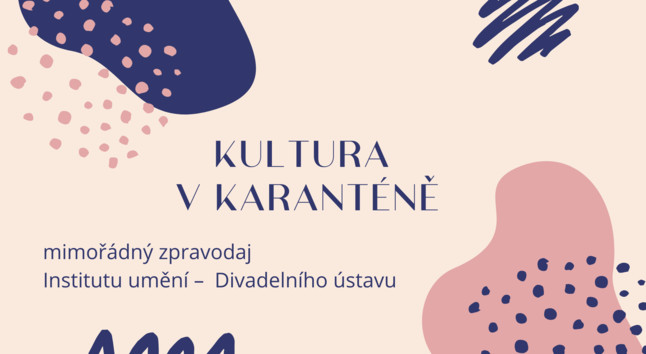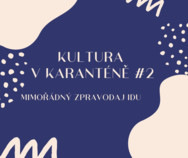It must be emphasised that the government’s measures changed during the period of data collection. As of 12 March 2020 events with fewer than 100 participants were permitted; by 16 March 2020, individuals’ freedom of moment had been limited.
Who completed the survey?
In total, the questionnaire was completed by 532 subjects across the cultural sector. Further comments and provisional estimates were also sent through separate statements and opinions. According to the replies received, the most negatively impacted fields are the performing arts disciplines, led by music (44.3 %) followed by theatre (21.1 %) and dance and contemporary circus (6.4 %).
Distribution of respondents according to individual fields
- Music
- Theatre
- Dance
- Visual Art
- Multicultural Centres
- Other Fields
- Other fields: literature, film and audiovisuals, choirs, museums, galleries, technicians (sound engineers, lighting technicians, etc.), designers, translators, moderators, reciters and a number of other professions.
Basic needs for cross-disciplinary measures have been established and can be divided into four categories:
1. The classic, existing selective grant systems operated by the state or by cities:
- The possibility to apply the costs of services rendered or cancelled in the statement of contributions already allocated.
- Where cancelled events have been supported by public funding (eg., the State Cultural Fund, the Ministry of Culture), to not require a return of the contribution.
- Timely payment of allocated grants, or at least notification of their amounts.
- To take into account the current situation and adjust the grant system entrance criteria for 2021.
- To change the accounting conditions of grants, including postponement of deadlines and adjustment of co-financing arrangements and indicators such as numbers of spectators or performances, etc.
- Reduction of rent for state- or city-owned buildings.
2. Indirect instruments
- The forgiveness of obligatory social and health insurance deposits with priority for artists and freelancers, either in total, or for the duration of the restrictions.
- Postponement or reduction of all salary deductions.
- Extension of the deadline for submission of income tax returns from physical and legal subjects.
- Immediate postponement of deadlines for paying VAT. And further, as an incentive, the reduction of VAT for all cultural goods to 10 % (eventually 0 %). The elimination or reduction of VAT on ticket sales (currently at 15 %).
- The forgiveness of some fees and a wider spectrum of tax relief.
- Interest-free loans for 10 or more years to cover this years’ outgoings.
- Interest-free loans from 10,000 CZK for freelancers (with trade licenses) and artists without trade licenses (under the Copyright Law).
- The possibility of compensation for daily childcare during the period of school closure.
- Non-introduction of the 3rd and 4th phases of EET.
3. Compensation or other financial support in connection with cancelled activities.
Organisations: compensation of recorded income or a portion thereof for the same period last year, or, alternatively, compensation in whole or in part of profits projected according to recorded contracts and other documents.
Individuals/individual artists: compensation for lost income in the form of an honorarium in the amount of at least 60 % of net income (equivalent to sick pay or family leave), or in the best case in the amount of 100 % (equivalent to situations where work is interrupted by the employer).
The creation of a relief fund within culture - or alternatively in collaboration with the public and private sectors.
4. Other
- To call on citizens to show solidarity and not immediately request the refund of tickets, but wait for the possible rescheduling of events.
- To call for the free loan of hardware necessary for 360 degree pay-per-view broadcasts of concerts and productions.
- Support for the live streaming of cultural events on social networks.
- To involve artists with assisting in other areas, such as childcare, and financially compensate them for this assistance.
- The creation of a clear web interface (and forums) for arts and culture workers, where information on the extraordinary measures and their impact on the arts scene will be continuously updated.
- In the future, acceleration of work on the strategic measures of the so-called Artist Statute, including legislative amendments.
- The preparation of a functional crisis plan for the future.

